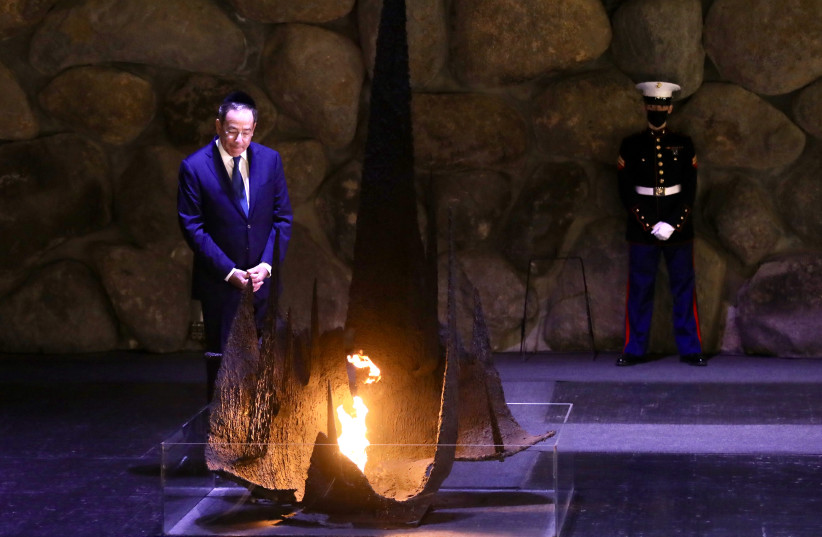As he takes up his new role, we welcome Ambassador Thomas Nides as the United States envoy to the State of Israel and wish him the best of luck in strengthening and safeguarding one of the strongest assets for the two countries – their strategic alliance.
Israel relies on the US and the US relies on Israel. While it might not always seem equal, the relationship is beneficial to both. Just read some of the recent foreign media reports about the role Jerusalem has played in helping Washington settle old scores against al-Qaeda terrorists or even top Iranian officials.
The relationship though is obviously far deeper and comprehensive than just security. Israelis and Americans share similar values, believe in democracy, freedom of speech, equality and civil rights. Neither of our societies are perfect and we both have our ongoing conflicts and vulnerabilities, but we strive to be better. That itself is not a small feat.
And for these reasons, the role Nides will play here will be crucial in ensuring the relationship weathers the Iranian storm ahead and the disagreements that are already evident between Jerusalem and Washington on how to confront the Islamic Republic.
So far, Nides has been very generous with his appearances since arriving. He went to Yad Vashem to light Hanukkah candles, and the next day, in a surprise, visited the Western Wall where he also lit the hanukkiah.

As Post correspondent Tovah Lazaroff pointed out, Nides’s visit gave a nod in the direction of the Biden administration’s recognition of Israeli sovereignty over the Western Wall, becoming only the second US ambassador to visit Judaism’s holy site, following his predecessor, David Friedman, who went there immediately upon his arrival in the country in 2017.
Until then, US officials did not move across the pre-1967 lines, including in the Old City, lest it be interpreted as a sign of acceptance of Israeli sovereignty in east Jerusalem.
We welcome those visits and the symbolism they carry but we are also concerned with the tension that is already being felt between Israel and the US when it comes to Tehran.
At the ceremony when Nides presented his credentials to President Isaac Herzog, the head of state warned that if the nuclear negotiations do not culminate in a deal that stops Iran’s pursuit of a nuclear weapon, Israel will act as it sees fit.
“If the international community does not take a vigorous stance on this issue, Israel will do so,” Herzog told Nides. “Israel will protect itself.”
Nides insisted that the US is committed to Israel’s security and to preventing Iran from obtaining a nuclear weapon. “We will continue to collaborate closely to advance peace and stability, and to counter the threat Iran poses to Israel and the region,” he said. “As President [Joe] Biden has made it very, very, clear, the United States is committed to ensuring that Iran never develops a nuclear weapon.”
That might be true, but to ensure that doesn’t happen, the Americans will need to be tough with Iran and stop it now, when it is still on the threshold of amassing enriched uranium, and not when it is on the verge of building a bomb.
Israel and the US have gone through difficult times before. There was the fight between Benjamin Netanyahu and Barack Obama over the Iran deal in 2015, the arguments about settlement construction, the disagreements between George W. Bush and Ehud Olmert on how to stop Syria’s nuclear program, the fights over the Oslo Accords and more. And that is just recent history.
The relationship has sustained all of this because most leaders understood that there was a bigger picture – the alliance could not be judged by just one issue but needed to be evaluated over what it really stood for: two democracies that fight for freedom.
Nides has stressed that he understands this, writing in the president’s visitors’ book, “The defense of this beautiful country is my most important priority.”
Understanding that the difference in the ways Israel views threats is critical to achieve this. While the countries are the closest of friends, there will always be different perspectives.
So while the period ahead might be tense, we wish Nides luck in maneuvering this complicated reality.
